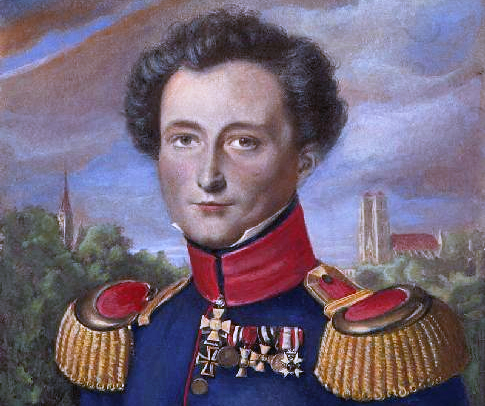Modern war’s revolutionary and absolute character seems to require the concept of freedom to be intelligible, because otherwise, the means and the ends would be impossible to connect in a way that we could rationalize.
#Reviewing War As Paradox
We must rethink our reading of Clausewitz's work as a search for and a description of eternal principles for an objective understanding of war. The nature of war is one thing, but war as instantiated in actual conflict and combat is another thing altogether; yet, both must somehow be held together in order to understand war. It is in this paradox that Cormier thinks we must locate, evaluate, and apply Clausewitz's ideas.
John Boyd on Clausewitz: Don’t Fall in Love with Your Mental Model
Boyd sought not so much to circumvent Clausewitz as to use the Prussian’s concepts as fuel in his own mental refinery. And Boyd’s message to his audience was that the process of mental refinement could not stop, nor be confined to the ideas of any one individual, no matter how insightful they might be. What might Clausewitz have made of such a critique? Judging by his own words, he would likely have been of the same mind.
Theory, Strategy, Context, and Execution
Military theory is a way of distilling the raw materials of history into a concentrated, potent form that educates the strategist and commander. In this way, theory can serve as a starting point for strategy. While sound military theory is a good starting point for strategy, however, context and execution matter. The positive impacts of theory upon strategy are often limited by the context in which theoretical principles are applied, and by the commander’s judgment and skill in applying them.
Strategy, Civil–Military Relations, and the Political Nature of War: #Reviewing Scales on War
To read Clausewitz on war is akin to reading John Muir on forests: each understood the particulars of his subject uncommonly well, but gained immortality for his insight into the nature and function of the whole. Scales on War, by contrast, is like a field guide to trees: full of interesting detail on the parts but with little to say about the entire ecosystem.
Fighting in Three Realms: Democratic, Autocratic, and Ideological
The political nature of the combatants changes the character of the war being fought. It starts with the idea that wars are different based on the type of political organization fighting the war. Democracies fight wars differently than autocracies, which fight wars differently than theocracies. The political nature of each of these types of government offer both strengths and weaknesses during the campaign. To develop a complete strategy the military and political leadership must take these differences into account.
#Reviewing Angola, Clausewitz, and the American Way of War
McCain has usefully drawn our attention to a case that teaches by negative example. In the same way that the United States thought that anti-terrorism operations in Southwest Asia and Africa would contribute to strategic victory in the global war on terrorism, South African leaders believed that that the use of highly trained and mobile forces in operations against Cuban forces and insurgents would ensure the survival of white majority rule and domination over Namibia. The end result demonstrates the difficulty of devising a grand strategy in the face of great uncertainty and flux.
#Reviewing Clausewitz in His Time
American Discontent: Unhappy Military Outcomes of the Post-Second World War Era
The dramatic title of a 2015 magazine article in The Atlantic by Dominic Tierney, “Why has America Stopped Winning Wars?,” underscored a portrayal of the final military deaths in Korea, Vietnam, and Iraq as both remarkable and poignant. A better question and the focus here is: Why do U.S. military outcomes after 1945 so often fail to achieve the policy objectives for which they are begun?
A Response to "U.S. Strategy for al Qaeda and ISIS: It’s Groundhog Day"
A recent article on The Strategy Bridge by James Dubik suggests U.S. policy on Islamic extremism suffers from Groundhog Day syndrome: endless policy repetition going nowhere. I wholeheartedly agree, but offer a different take on his argument. Islam is, at the most basic level, waging a war against itself, and we would do well to attend to this.
Five Things That Helped Carl von Clausewitz Become A Great Strategic Thinker
While Carl von Clausewitz is often quoted, in reality his treatise On War is rarely studied in depth. In times when the U.S. military struggles to find its strategic footing, however, reading and debating Clausewitz’s complex ideas are needed more now than ever before. Perhaps even the times and conditions in which he developed them deserve a second look, for they contain lessons about how strategic thinkers grow and develop.
#Reviewing A History of Strategy
Strategists are a critical bunch. After all, critical analysis is an important skill for those involved in scrutinizing international relations, history, and policy to generate insights. It is therefore curious that Martin Van Creveld’s book A History of Strategy: From Sun Tzu to William S. Lind immediately opens itself to the nitpicking of strategists in two related regards. First, the treatment of such a vast topic is too brief, running just 124 pages. Second, as a natural extension of its brevity, the details about the strategists it addresses are rather sparse. If the reader is able to overlook these limitations, however, A History of Strategy is a useful overview of the figures and ideas that form the canon of strategic thought.
In the Mind of the Enemy: Psychology, #Wargames, and the Duel
Over the last eighteen months, the Australian podcast the Dead Prussian has asked each of its guests a simple yet deeply contested question: “What is war?” Answers have ranged from Professor Hal Brand’s insightful “war is a tragic but inescapable aspect of international politics” to my own citation of John Keegan’s “war is collective killing for some collective purpose.”Nobody so far has said that war is a “game”. Thankfully this isn’t surprising; anyone who has fought in war, or just studied it, will be aware that this would trivialise the destruction that can lie within. But it is also of note that nobody so far has labeled war as a duel.
#Reviewing Black: Insurgency and Counterinsurgency
There have been a great many books published on the subjects of insurgency and counterinsurgency since the inception of the Global War on Terror (or “current, ongoing overseas contingency operations”, if you prefer); a number of these have focused on the U.S. Army’s mistakes in Vietnam or on the efforts on the United States and its allies in Iraq and Afghanistan. Jeremy Black’s recent contribution, Insurgency and Counterinsurgency: A Global History, offers more insight; it is a comprehensive history of insurgency and counterinsurgency warfare that is not limited in scope to the efforts of Western powers.
Tactical and Strategic Interdependence
Only by understanding the proper framework and context within which to place and employ the means towards the ends can tactical victories and strategic successes possibly be achieved. Strategy and tactics are absorbed and coextensive in the mind of the commander, within the plan of war, which decides combat, the crucial key connecting and explaining strategy, tactics, and their relationship.
The Myth of Total War
It is not useful to define wars by measures such as size, scale, or commitment because these are subjective and thus cloud analysis. This is particularly true in regard to such things as cost and casualties. How much a war costs, how many people it kills, and what it consumes and destroys are certainly important issues—no one disputes this—but these are not bases for critical analysis because they fail to generate solid, tangible, universal foundations for discussion, which is exactly what writing on such subjects should provide.
The Master Strategist, Clausewitzian Genius
Could Genghis Khan and Alexander the Great have achieved their unmatched successes were it not for the generals and advisors who played major roles in those successes? Arguably not. Strategy, by nature, is adaptive and evolutionary. While it is necessary for leaders to have strategic minds, it is perhaps even more important to have systems in place which allow for individuals to further develop their education and have the opportunity to influence the development of a nation’s strategy.
Targeting Clausewitzian Judgments: Fusing Precision and Accuracy to Strategy and Tactics
Just as no war can take place without an enemy, there can be no war without targets. Considering the enemy, as a whole, a target, while true, borders on tautology. Instead, we subdivide the enemy into many individual parts against which we act. However, selecting these targets requires accurate strategic vision and precise tactical acumen.
#Reviewing How Everything Became War
How Everything Became War and the Military Became Everything is an important addition to the professional body of literature on the evolution of warfare, providing readers with ideas on the future of warfare and the required institutions, legal frameworks, and strategies that need to be in place to maintain stability against an increasing number of threats to the post World War II order. While the nature of war has remained unchanged, the character of warfare is continuing to evolve and as Brooks points out, if we fail to act, we run the risk of unraveling the very fragile norms of warfare and human rights developed in that momentous summer of 1945.





















